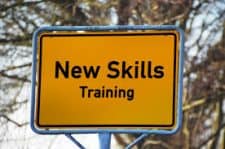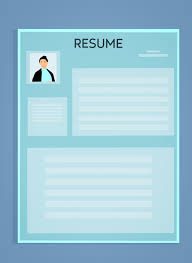If you aren’t there already, you’re going to get there eventually (hopefully).

In some people’s minds, 50 may be the new 30 but, in some employers’ minds, candidates who are over 50 arouse stereotypical concerns such as “coasting to retirement”, inflexibility, outmoded thinking, unwillingness to change, lack of energy, unfamiliarity with new technology (and being generally uncool).
Luckily, as with many stereotypes, these broad generalizations are wrong more often than they are right when it comes to recruiting. There are a legion of older candidates who cannot be categorized as any of the above, proving again that what makes recruiting an art as much as it is a science is the need to evaluate each individual on his or her own merits as an individual and not according to any pre-set image based on any generalized characteristic.
Generalizing saves us time and is often a useful means of daily survival, but it has its limitations and in recruiting great team members, the risk is that an over dependence on generalizations of any sort, will lead to one of two types of errors.
Error #1
Recruiting the wrong people mainly because they share one or more characteristics with a group of people that the hiring manager views positively (e.g., age, gender, race, country of origin etc.); OR
Error #2
Failing to recruit the right people mainly because they share one or more characteristics with a group of people that the hiring manager views negatively (see the same characteristics above)
There has been a lot of talk recently of people over the age of 50 being forced to retire. This has left many workers over the age of 45 wondering if they may be facing the same fate, or if it makes sense for them to consider a job change.

While ageism is often unfair discrimination and it does occur, it is very difficult to get hard proof that it is occurring. Deciding against hiring a candidate of any age who appears to be inflexible or lacks energy is not discrimination and is a wise decision on the part of the employer. Those negative characteristics are not necessarily only applicable to candidates of a “certain” age and many older candidates show none of the negative characteristics that the stereotypes are based on.
The best thing that any employee can do, at any age, is to ensure that they are essential to their employer and remain a valuable resource.
Read More: Hire The Best, Forget The Rest
Here are a few tips on what to do to stay relevant.
How to Stay Relevant in the Workforce at Any Age
- Ensure You Are Growing with the Right Skills
In today’s technology-focused world, it is important to embrace leading edge tools in order to maintain your status as efficient and relevant. Did your company just  implement a new system or software? Become an expert and a mentor. Invest the time to learn something new every day.
implement a new system or software? Become an expert and a mentor. Invest the time to learn something new every day.
Millennials grew up using technology, which is a great advantage, but staying up to speed is not insurmountable for anyone at any age.
- Be Open to New Ways of Doing Things
Companies must be more innovative than ever in order to compete in today’s environment and that means constant change. Try not to fall into the “well, this is how we have always done it!” trap.
Instead, embrace change, ask to lead change, and be the first to try new things. Show your managers that you are a champion for innovation, curiosity and improvement. You are the one with years of experience, therefore you have the expertise to really influence meaningful change with your knowledge.
- Find a Younger Mentor
Just as young mentees look for experienced mentors, there is no reason an older worker cannot turn to a younger employee for advice. Pair up with someone  younger who is doing things that you are unfamiliar with. Ask for advice, talk through problems, and learn from one another. This will help you take notice of the trends that are changing, new technology, and what others are saying.
younger who is doing things that you are unfamiliar with. Ask for advice, talk through problems, and learn from one another. This will help you take notice of the trends that are changing, new technology, and what others are saying.
Having a pulse on what the “younger” workforce thinks, will give you a competitive edge because you will know what is going on, and where you can offer ideas.
- Ask for Feedback
Feedback is integral for continuous learning and growing as a professional. Keep the channels of communication open with your boss, peers and subordinates about how you are doing and what you can be doing better. Development never stops, no matter how seasoned you are as a professional. Show that you are willing to learn and be open to identifying gaps in your skills and knowledge so that you can plug any holes.
- Keep Your Résumé Crisp
Regardless of how many jobs you have had, keep you résumé to two pages plus a cover letter. Keep all three pages in one electronic file when sending it to a  prospective employer. That way the cover letter doesn’t get separated from the résumé and lost. Of course, your cover letter should be custom tailored to the company that you are sending it to and should give some insight into your motivation for making a change that is not apparent from your résumé.
prospective employer. That way the cover letter doesn’t get separated from the résumé and lost. Of course, your cover letter should be custom tailored to the company that you are sending it to and should give some insight into your motivation for making a change that is not apparent from your résumé.
Feel free to put dates on your education and all your jobs. You are not fooling anyone by trying to disguise your age, since the truth will become apparent when you attend an interview. Save the recruiting firms and employers the trouble of trying to figure it out on their own.
- Stay Relevant on LinkedIn
Many recruiting and hiring managers will look at your LinkedIn profile. LinkedIn is a great place to network and find a new job, so make sure that you have a business-appropriate photo – not one with you in your gym shorts. This isn’t Facebook. Also, make sure that your résumé and LinkedIn profile are in sync as to jobs, education and dates. Differences will raise questions.
- Know How to Interview – and Practice!
Just because you have years of experience, this alone does not guarantee that you will come across well in an interview. Experience is only one part of the interview puzzle. Recruiting firms are also interested in cultural fit, energy and motivation. You should research the company well so that you understand where it stands in the marketplace and how it is viewed by current and past employees (check Glassdoor.com). As part of your research, do a deep dive into some aspect of the company’s business and come up with a few questions about issues that the person interviewing you will not be aware of (i.e., “In my reading, I noticed that the sale of electric vehicles to Brazil has increased dramatically over the past few years, whereas sales of the same vehicle to Europe has declined. I am interested in what the reason for that might be.”)
If you have not had an employment interview in years, practice with a friend who is asking difficult questions. Interviewing is a skill, and practice makes perfect.
Read More: Good Sales People Are Free
Never “Too Old”
 While you may feel that you are being viewed negatively because of your age, you can change that view through your behaviour and how you appear in print and online. By keeping current with changes in your industry, profession and related technology, and having an energetic and positive worldview, you can easily overcome the stereotypes of aging.
While you may feel that you are being viewed negatively because of your age, you can change that view through your behaviour and how you appear in print and online. By keeping current with changes in your industry, profession and related technology, and having an energetic and positive worldview, you can easily overcome the stereotypes of aging.
Kathbern Management is an executive search consultancy based in Toronto, helping companies find the executives and senior managers who not only have the experience and credentials to fulfill their responsibilities, but also have the emotional and “fit” requirements that will enable them to be successful in a particular environment. We simplify the process and, through our deep research, are able to bring more and better candidates forward than would ever be possible through a do-it-yourself passive advertising campaign.
Contact us today for a free consultation about your key person search.

